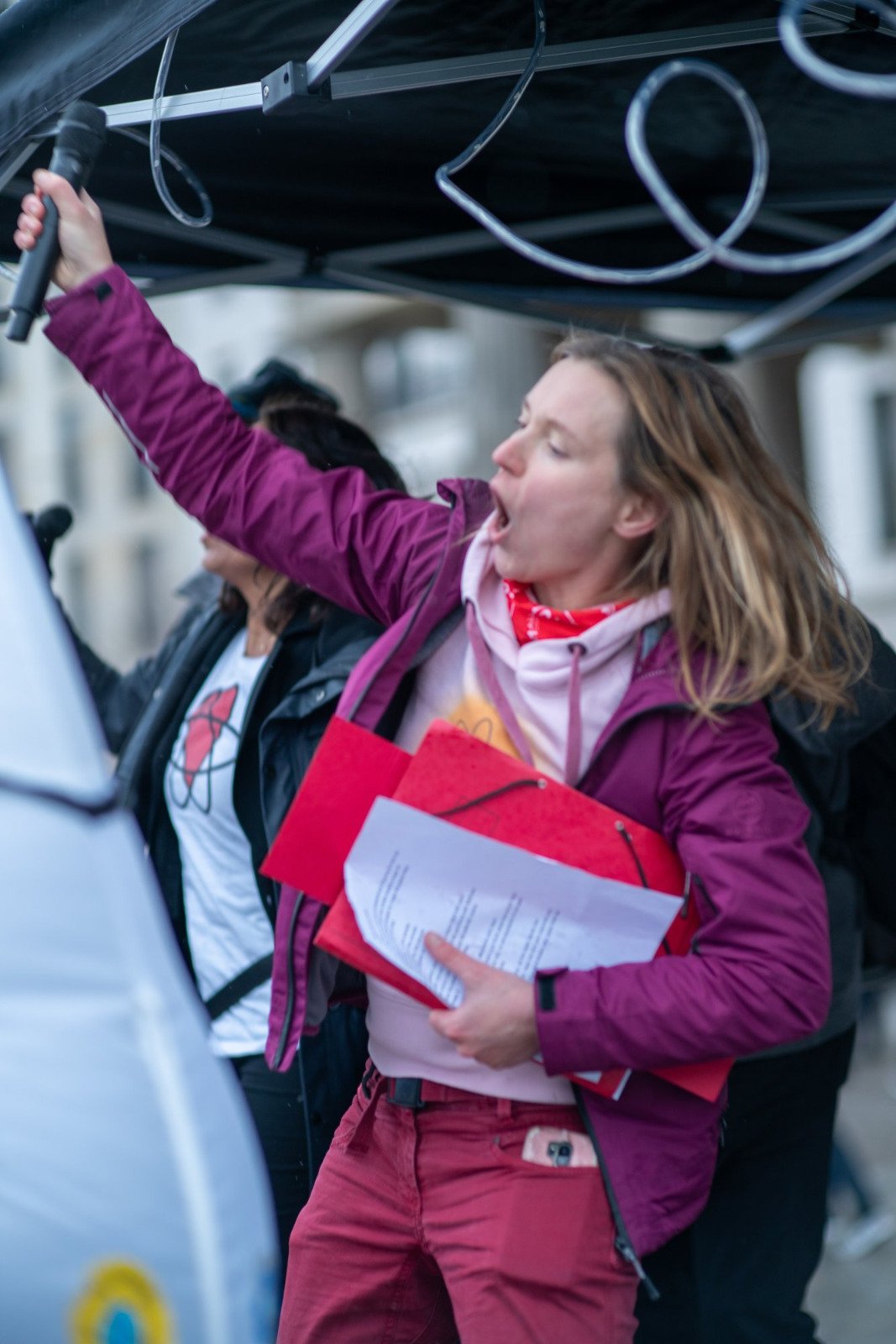Britta Augustin, German Advocate - January ‘23
Britta Augustin, a lifelong nuclear energy supporter, something uncommon in her native Germany, and a key activist with Nuklearia and Mothers for Nuclear Deutschland.
meet The German who believes Nuclear is green
Growing up in Eastern Germany, Britta Augustin experienced lung pain and skin maladies related to the heavy air pollution. Augustin’s small town also bordered mountains and forests; like many Germans she cherished this natural beauty.
While many German environmentalists maintain an anti-nuclear energy attitude, viewing the source as artificial, Augustin said because of her love of the environment and upbringing she has always been pro-nuclear.
In terms of Augustin’s personal journey towards nuclear, as a child of East Germany, she grew up reading children’s books from Russia touting nuclear as the technology of the future. She said it meshes well with socialism because it fulfills everyone’s needs.
Augustin later heard about Chernboyl and investigated the incident. This confirmed her pro-nuclear beliefs.
“If you really go into the details, then you know, it cannot happen again. Because it is so special,” Augustin said. “You really have to dive really deep into this topic, and then you know, okay, that's it, it will never happen again.”
Augustin singing at a pro-nuclear rally with Nukelaria and Mothers for Nuclear Deutschland in Berlin, 2022. (Photo Courtesy of Augustin)
Britta has been a leader within the nuclear advocacy organization Nuklearia since 2018 and she helped found Mothers for Nuclear Deutshcland in 2020 along with Lisa Raß, Anna Veronika Wendland, and Ulrike von Waitz.
Bringing nuclear energy into political discussions in Germany remains one of her greatest accomplishments with Nuklearia. Through pro-nuclear rallies, the group has drawn attention and publicity to the wrongful closures of Germany’s nuclear plants. In one year, Augustin said, they put together 15 demonstrations across the country.
Nuklearia got their first taste of how powerful these rallies can be in Munich in 2018 when they attended the first Nuclear Pride Fest (now called Stand Up for Nuclear). Keeping the momentum, this past year they hosted an international rally this past April in Berlin. This event was held on the closure day of Germany’s last three nuclear reactors, and was attended by activists from Poland, France, and the U.S., and received heavy media coverage.
The level of engagement and discussion generation the group has had is impressive progress, considering 10 years ago the topic was dead. Op-eds, social media, and public events have helped achieve this. The shift is so dramatic, in fact, that recent polls show it is no longer popular to oppose existing nuclear power in Germany, and the majority of people would like reactors to remain on. A 2022 poll showed a majority of Germans support nuclear energy.
Facing an anti-nuclear political opposition within the country, however, Augustin and other advocates show incredible resolve and hope, even as plants close.
“We still fight for them because we know they are still intact. They can still be brought back. It (could) take years and years. It will still be possible to bring them back,” Augustin said. “We will make our way back to nuclear, but it will take time.”
Augustin, right, with Myrto Tripathi, left, at the first Stand Up for Nuclear event in Munich, 2018 at a Nuklearia stand. The stand informed the public about radiation, and how low levels of natural radiation are safe. (Photo courtesy of Augustin)
One of the largest obstacles, according to Augustin, is that many Germans have an environmental mindset that considers nuclear energy unnatural. She also said they are conservative and take time to change their minds– in some ways she says they are not modern.
With Nuklearia, Augustin plans to attend a rally on July 15 in support of nuclear energy as the Bavarian elections approach. She said they appreciate international support.
Fear of the energy source plays a role, particularly with older generations, Augustin said. She said she is hopeful that the younger generation no longer holds onto this fear, and feels inspired to act based on concern of the climate.
“So as people grow this fear or is changing because now we have other fears and they take over,” Augustin said. “So nobody is afraid of nuclear power plants any more because we have much more real problems. Because the world is changing.”



